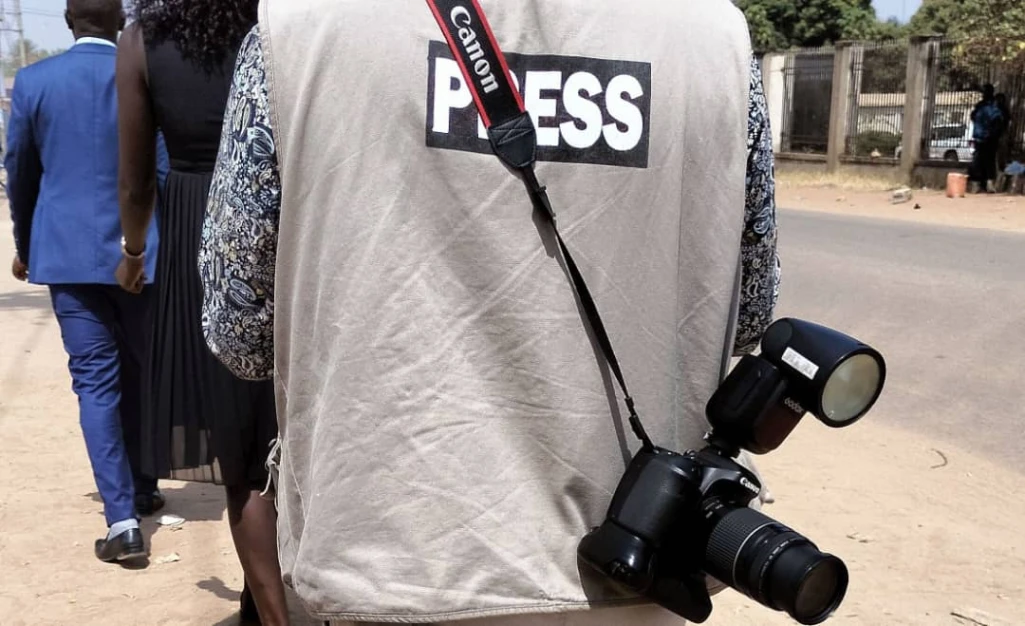
As South Sudan joins the world in commemorating World Press Freedom Day, journalists say practicing independent journalism remains difficult, with ongoing threats, arrests, intimidation, and censorship, despite constitutional guarantees.
South Sudan’s press freedom ranking dropped from 118th in 2023 to 136th in 2024 and improved to 109th in 2025, but journalists say the environment remains deeply hostile, especially for those who report critically on the government or security forces.
“My major fear is, I can lose my life at any time. Because if
I report anything [hidden truth], I will be killed or I can be arrested or
anything can happen to me,” said Susan Chieku, a journalist working for
Catholic Radio Anisa FM in Yambio, Western Equatoria State.
She said fear prevented her and her colleagues from
reporting atrocities including rape, looting, and destruction of civilian
property by armed forces.
Those who defy this fear often face harsh consequences, even
detention. In August 2024, journalist Sisto Ohide, then of Singaita FM was arrested after reporting a dispute between the Catholic Church and a woman accused of breaking
a statue of the Virgin Mary. He was only released after the diocesan bishop
intervened.
“There is less freedom of press in the country,” Ohide
asserted. “There is need for the security forces that the government is using
to uphold the constitution.”
In November 2024, Emmanuel Monychol Akop, editor-in-chief of
The Dawn Newspaper in Juba, was arrested by theNational Security Service (NSS). He remains in detention to this day. The Union
of Journalists of South Sudan (UJOSS) continues to call for his release or a
fair trial.
Oyet Patrick, UJOSS president, said the continued detention
of Monychol and presence of security at printing press indicates that press
freedom has not improved, despite having no recent report of article removal as
it was in the past.
“The problem is not about only removal. The mere fact that
your newspaper is read [by security] before it is published is a concern,” Oyet
said. “We believe that for us to do a good job, we need freedom.”
Even journalists affiliated with state-run media face
censorship. Thomas Otwari, secretary of the UJOSS branch in Eastern Equatoria
and a reporter for Voice of Eastern Equatoria, said they are constantly
pressured to comply with the government narrative.
“We have been advised not to make a mistake to have issues
that are against the government,” Otwari said, recalling how he was questioned
for airing a story about Nasir conflict that mentioned the SSPDF.
In Juba, security personnel maintain a visible
presence at printing press, a security measure defended by Maj. Gen. Lul Ruai,
spokesperson for the South Sudan People's Defense Forces (SSPDF), who argues
that it is necessary to prevent incitement.
“Having security personnel at printing press has nothing to
do with curtailing the freedom of the press or speech but it is intended that irresponsible
individuals do not take into print media statements that may incite, promote
division and hate speech," Ruai argued.
Still, many journalists view this presence as a form of
pre-publication censorship, undermining both Article 24 (freedom of expression
and Media) and Article 32 (access to information) of the Transitional
Constitution of South Sudan (2011).
Some journalists see small signs of improvement. Adia Jildo
of Juba Echo TV noted that access to government information has become easier
in certain instances although inconsistent.
“I can’t say there is enough press freedom, but we have seen
some improvement in recent times that when we need an information, we get it,
but it’s not guaranteed every time specially when writing stories related to
the government,” Jildo said.
Others remain unconvinced. Buda Ladu of Number One Citizen
Newspaper in Juba said the media environment is stagnant, recalling how authorities
obstructed his investigation into illegal logging, eventually forcing him to
abandon the story.
“The media landscape in the country is kind of stagnant not really
improving as we wish because much as we have articles in the constitution that
talk about access to information and press freedom, we are not seeing it,” Ladu
said.
James Kabaka Quintos, editor-in-chief of the
government-owned Voice of Eastern Equatoria 97.5 FM, said there is more freedom
in the state, but self-censorship among sources remains a major challenge.
“In Eastern Equatoria, the media environment is very okay.
We operate without intimidation or harassment. Our main challenge is that
sources are self-censoring,” he stated.
According to the record of the Union of Journalists of South
Sudan, at least 12 journalists including 11 South Sudanese and 1 foreign, have
been killed since 2012, with no one held accountable.
This year’s World Press Freedom Day is being observed under
the national theme: “Support Enabling Environment for Media in South Sudan.”
Both security officials and journalists agree on the need for dialogue, but until repression is addressed, media freedom will remain unfulfilled.